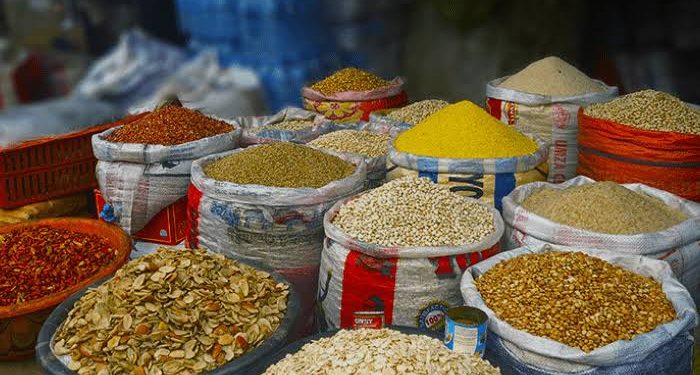By Ebi Kesiena
A recent survey conducted by NOIPolls has unearthed a harrowing reality, that a staggering 70 percent of adult Nigerians regularly experience hunger due to insufficient food availability, adding that there is a pressing issue of food insecurity plaguing the nation.
The survey, conducted nationwide, discovered that 28 percent of respondents attributed the primary cause of food insecurity to farmer-herder clashes, underscoring the grim impact of violent conflicts on food stability.
Additionally, 16 percent linked food insecurity to unemployment, reflecting the multifaceted challenges facing Nigeria’s food landscape.

While presenting the result of the findings to stakeholders and the media in Abuja, CEO NOI Polls, Dr Chike Nwangwu noted that the survey has further highlighted how violent conflicts, including insurgency and farmer-herder clashes, has worsened food insecurity, particularly in regions like the North-East and North-West.
According to Nwangwu, there is a stack reality of rising unemployment and the escalating cost of living have compounded the crisis, limiting citizens’ access to food and undermining their living conditions.
Furthermore, the survey revealed sad insights into the daily struggles faced by Nigerians. A staggering 89 percent expressed concerns about the adequacy of their food purchases, while 88 percent worried about running out of food before replenishing their supplies.
Another 81 percent admitted to reducing meal sizes due to financial constraints, with 80 percent resorting to repetitive meals due to limited food options and financial constraints.
READ ALSO: Where Is Niger’s Mohammed Bazoum?
As regards dinner, with 49 percent of the respondent noted that they go to bed hungry due to financial constraints, while 40 percent acknowledged skipping meals due to insufficient funds for food.
In response to the crisis, respondents offered recommendations to tackle food insecurity. Notably, 26 percent advocated for addressing insecurity, while 14 percent emphasized the need for improved agricultural policies. Suggestions also included opening closed borders, 12 percent suggested reducing fuel prices, 9 percent suggested creating job opportunities, and 7 percent suggested addressing climate change.
NOIPolls explained that the survey was conducted in October 2023, interviewing 1,000 randomly selected adult Nigerians across diverse demographics and regions. While the methodology primarily employed telephone interviews, ensuring a statistically precise margin of error of plus or minus 4.65 percent, it acknowledges the limitations of excluding non-phone-owning Nigerians.
As Nigeria grapples with escalating food insecurity, the survey underscores the urgent need for comprehensive interventions to address the root causes and alleviate the suffering of millions facing hunger across the nation.



































